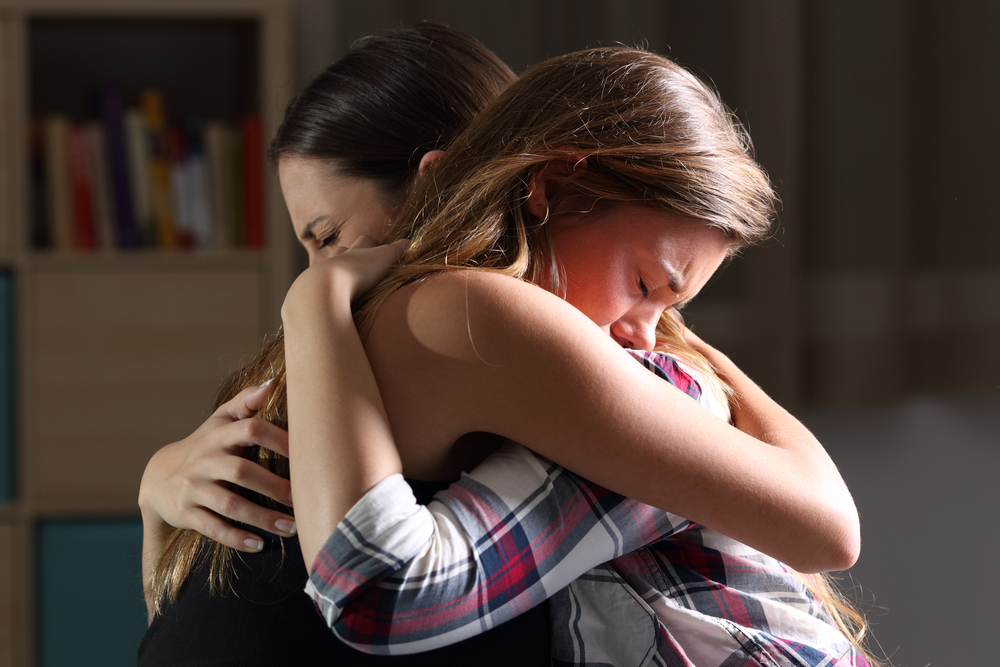Today’s teens deal with loss far more often than the adults in their lives may want to admit. When a teenager is struggling with the death of a parent, friend or loved one, they need support from those closest to them. Here are ways you can help with adolescent grief.
How Often Do Teens Deal with Loss?
Nearly 1 in 13 children in the US will experience the death of a parent or sibling by age 18. Between April 2020 and June 2021, 140,000 children and teens lost a parent or caregiver, including 72,000 whose parents died to COVID-19. Far more experience the loss of close relatives. In addition, the Centers for Disease Control and Prevention reports that the teen death rate rose between 2014 and 2017 and jumped sharply in 2020. The most common causes of teen deaths are accidents, homicides, and suicide. That means there is a good chance that your teen, or one of their classmates is experiencing adolescent grief.
Get help for your teen dealing with loss.
Talk to a psychotherapist about adolescent grief today.
Unlike younger children, teens understand the concept of death. However, they may not have the experience, coping skills, or developmental maturity to respond to their feelings around the subject of loss. Adolescent grief can be overwhelming to teenagers, who may not know how to handle the emotions they are facing. This can cause them anxiety or shame, or cause them to hide their emotions, rather than experiencing them.
What Does Adolescent Grief Look Like
Teens – just like adults – each experience grief differently. The way death impacts teenagers depends on their relationship with the deceased, their personal and emotional development, any mental health challenges they may have, and the other stresses present in their lives at the time. While grief is unique and no two teens will feel exactly the same, adolescent grief often includes:
- Unexpected outbursts or crying,
- Mood swings, often with little provocation,
- Anger and lashing out, sometimes with no reason
- Heaviness in the chest,
- Tightness in the throat,
- Trouble sleeping,
- Bad dreams,
- Emotional regression (sometimes including bed-wetting)
- Feeling empty or hopeless,
- Restlessness and difficulty concentrating,
- Guilt over things said or done (or left unsaid or undone)
- Anger at the deceased for dying (often followed by guilt over being angry)
- Feeling the loss isn’t real or didn’t happen
- Expecting to see or hear the deceased or “sensing” the deceased’s presence
- Talking to pictures or speaking aloud to the deceased (often in a special place)
- Putting on clothes, traits, language, or mannerisms of the deceased
- Retelling stories about the deceased
- Inability to speak
- Withdrawal or absence from school
- Reduced academic performance
- Needing to seem overly responsible,
- Taking on the deceased’s roll in the household
- Taking care of others
How Adults Can Help with Adolescent Grief
If you are a parent, loved one, or friend of a grieving teen, you may be desperate to find ways to help them through the pain. A teen dealing with loss needs to know they have your support. They also need to be reassured that there is no “right” or “wrong” way to experience grief, and that it is okay for them to feel what they are feeling.
That said, there are more and less constructive ways to mourn. Constructive outlets include:
- Talking to someone they trust (even if it isn’t you)
- Journaling
- Creating something
- Volunteering or giving back to the community
- Speaking in the deceased’s honor (such as at the funeral or a family dinner)
- Participating in short-term psychotherapy or grief counseling
Giving your teen constructive ways to grieve can help resolve their feelings more quickly and prevent their sadness from spiraling into depression or destructive coping mechanisms like drinking, drug use, or high-risk behaviors.
Teens also need to know that the path through grief is not a straight line. They won’t “get over” the loss they experience, and it may resurface because of a special day, important event, or even a particular song. At the same time, they need to know it is okay to feel happiness and even laugh while they are still grieving. It is not an insult or a slight to the person they have lost.
David Stanislaw is a psychotherapist with over 30 years of experience. He helps children, teens and adults with grief, loss, depression, and suicidal ideation. Contact David Stanislaw to get help for your teen today.


 Common Treatments for Depression
Common Treatments for Depression Are Childhood Family Patterns Affecting Your Marriage?
Are Childhood Family Patterns Affecting Your Marriage? 7 Ways Therapy Can Make You a Better Parent
7 Ways Therapy Can Make You a Better Parent